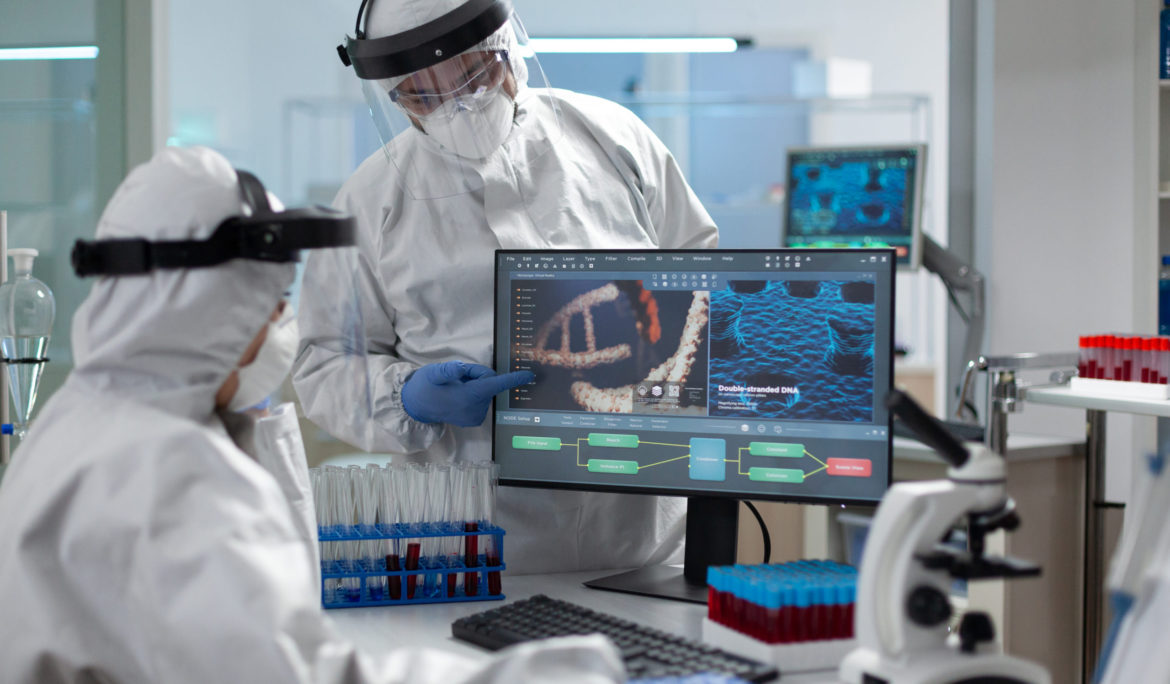What’s New, What’s Next in Assisted Reproductive Technology


In the ever-evolving world of assisted reproductive technology, In Vitro Fertilization (IVF) continues to be at the forefront of innovation. As we step into 2023, the field of IVF is poised to introduce groundbreaking advancements that promise to redefine the fertility treatment landscape. In this article, we’ll explore what’s new and what’s on the horizon in IVF technology for the year 2023.
What are The Latest Developments in IVF?
The latest developments in IVF are focused on improving the success rates for couples seeking fertility treatment. In recent years, scientists have begun to explore new techniques that may improve outcomes.
Personalized Treatment Plans
One of the most significant developments in IVF is the move towards highly personalized treatment plans. In 2023, fertility clinics are increasingly leveraging genetic and genomic information to create tailored IVF protocols for each patient. By understanding an individual’s unique genetic makeup, doctors can optimize the treatment to increase the chances of success and reduce the risk of complications.
Artificial Intelligence and Predictive Analytics
Artificial intelligence (AI) is playing an increasingly prominent role in IVF. AI algorithms are being used to analyze vast amounts of patient data, helping clinicians make more informed decisions about embryo selection, timing of procedures, and treatment adjustments. This data-driven approach is revolutionizing the precision and success rates of IVF treatments.
Embryo Monitoring and Time-Lapse Imaging
In 2023, embryo monitoring and time-lapse imaging are changing the way IVF is practiced. Advancements in embryo monitoring technology have made it possible for continuous observation of embryos without disrupting their development. Time-lapse imaging, which captures images at regular intervals, allows embryologists to identify the most viable embryos more accurately. This minimizes the need for multiple embryo transfers, reducing the risk of multiple pregnancies.
Non-Invasive Prenatal Testing (NIPT)
Non-Invasive Prenatal Testing (NIPT) is an exciting new development on the horizon for 2023. NIPT is a simple, non-invasive blood test that can detect chromosomal abnormalities in developing babies early on in pregnancy. This form of genetic screening is incredibly useful for parents-to-be who want to make informed decisions about their pregnancies. With N IPT, parents can rest assured that their unborn child is healthy and developing normally.
Cryopreservation and Genetic Banking
Cryopreservation techniques have advanced, allowing for more extended storage of embryos and gametes. This extended window offers greater flexibility to patients, allowing them to choose when they want to start their family. Genetic banking also allows individuals to store their genetic material for future use, preserving their fertility options.
Mitochondrial Replacement Therapy
Mitochondrial Replacement Therapy (MRT) is an exciting new development in the field of assisted reproductive technology. MRT is a form of genetic engineering that replaces mutated or damaged mitochondria within a cell with healthy ones. This can reduce the risk of certain inherited diseases and conditions and has been proven to improve pregnancy success rates in IVF treatments. In 2023, MRT offers a promising new hope to couples looking to start a family.


What’s Next in IVF?
The future of IVF is both exciting and promising. As we move forward, researchers are exploring even more innovative techniques and treatments. These include:
Artificial Wombs
Artificial wombs are an emerging technology that could revolutionize IVF treatments. By eliminating the need for uterine gestation, this technology would allow embryos to develop outside of the womb—potentially reducing the risks associated with traditional IVF. Some researchers are now using animal models to explore how artificial wombs can be used in human pregnancies. While this promising technology is still years away from reaching clinical use, it could become a game-changer in the field of fertility.
Stem Cell Therapies
Stem cell therapies are being studied for their potential to improve embryo and sperm health, increasing the chances of conceiving and carrying a healthy baby. These treatments involve harvesting stem cells from embryos or other sources before using them to repair damaged cells or improve IVF outcomes. While still in its early stages, this technology could be a major breakthrough for couples who are struggling to conceive.
Gene Editing
CRISPR techniques are being developed to correct genetic defects in embryos before they are transferred into the uterus, increasing the chances of successful pregnancies. Recent advances have enabled researchers to test gene editing techniques on animal models with promising results. While there are still ethical and technical issues to be resolved, gene editing could soon become a viable option for treating infertility in humans.
In Vitro Gametogenesis (IVG)
IVG is a cutting-edge technology that aims to create eggs and sperm from a patient’s cells, potentially eliminating the need for egg or sperm donors.
IVG involves taking cells from a donor, such as skin cells or even blood cells, and turning them into gametes—that is, fertilizable eggs and sperm. This technology could be used to generate gametes for couples who are unable to conceive naturally, or even for individuals who have lost their fertility due to medical treatments.
Conclusion
IVF in 2023 is marked by remarkable advancements and exciting prospects. With highly personalized treatment plans, AI-driven decision-making, and improvements in embryo selection, IVF success rates are on the rise. Non-invasive prenatal testing, extended cryopreservation options, and emerging technologies like mitochondrial replacement therapy are shaping the future of assisted reproductive technology. As we continue to push the boundaries of scientific knowledge, IVF is poised to provide even greater hope and possibilities for individuals and couples on their fertility journey.
If you need more information, please feel free to contact us.



